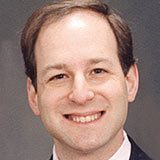The high quality portion of the US bond market surprised most investors in 2014. Instead of rising throughout the year, interest rates on long-term, high quality debt fell to historically low levels, causing such investments to rise in value, observes Mark Salzinger, editor of The Investor's ETF Report.
Yields on long-term Treasuries have fallen to very low levels. Partially as a result, we do not expect funds that invest in such debt to produce exceptional total returns again over the next 12 months.
Other types of investment-grade US bonds, including municipals and corporates, yield only slightly more than Treasuries, or even less. Their yields, too, are much lower than they were a year ago.
The yields of high-yield US corporate bonds are moderately more appealing. The iShares iBoxx $ High Yield Corporate Bond ETF (HYG) recently had a 30-day SEC yield of 5.6%.
While not very high on an absolute basis, that’s not too skimpy relative to a yield of less than 2% on a 10-Year Treasury bond. Unless the US economy falls off a cliff, we expect high-yield bond funds to produce total returns in-line with their interest payouts in 2015, so, 5% or 6%.
PowerShares Fundamental High Yield Corporate Bond (PHB) selects high-yield bonds based on companies’ total sales, cash flow, dividends, and book value, in an effort to identify those most likely to make good on their borrowing obligations.
It has a lower yield (recently 4.6%) than broad, market-value-based high yield bond ETFs, but it also has a higher average credit rating and greater exposure to consumer discretionary companies, which could thrive in an environment of falling unemployment and lower gasoline prices.
We continue to favor PowerShares Fundamental High Yield Corporate Bond for its emphasis on a borrower’s capacity to repay debt in selecting its holdings.
As benefits from continued economic growth redound to state and local governments, Market Vector High Yield Municipal (HYD) should gain. It has an attractive absolute yield of 4.3%, but its tax-equivalent yield is obviously better, recently 6.0% to an investor in the 28% tax bracket.
HYD invests at least 25% of its portfolio (recently 30%) in bonds rated BBB, the lowest investment-grade tier. This slug of higher-rated credit should help reduce volatility and improve the liquidity of the portfolio.
Subscribe to The Investor's ETF Report here…
More from MoneyShow.com:










